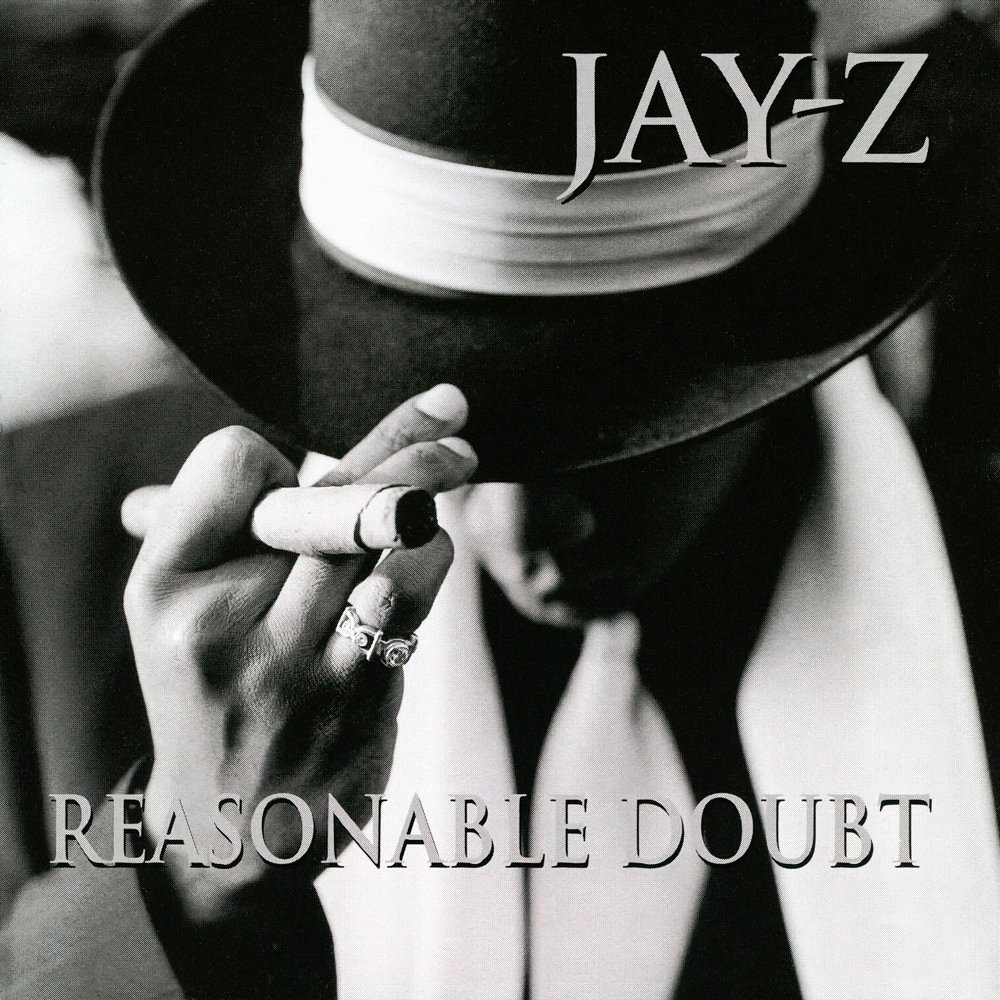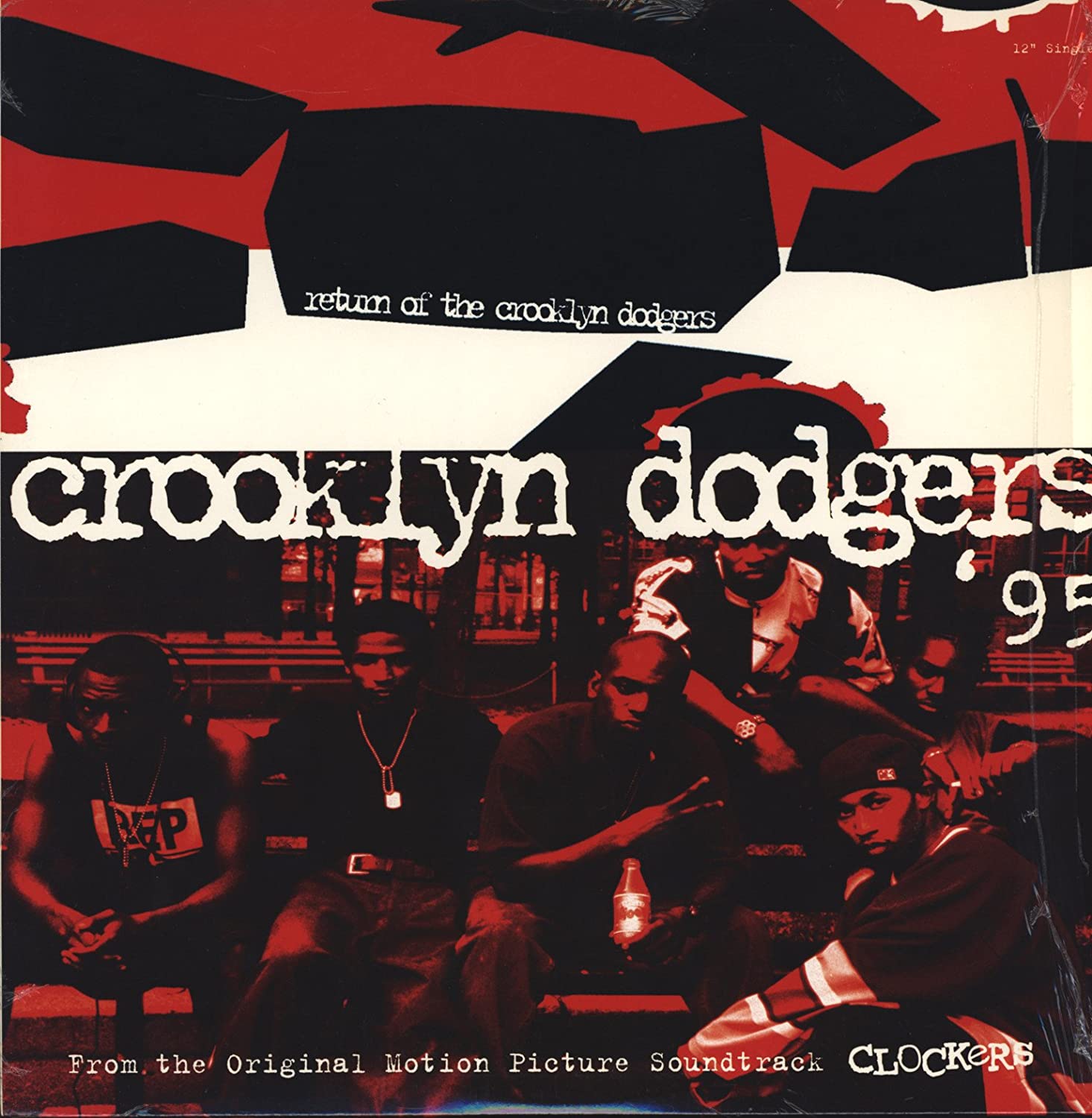(Editor's note: In honor of Black Music Month, we are flipping the script for the next few weeks with Please JAM. For this week and next, instead of James sending Vince newly released singles to react to, Vince is digging in the crates and putting his young, British mate onto some of his favorites. We’re going from 1950 through the ‘70s in this edition. We’ll handle the ‘80s through the present next week. Please jam…)
Louis Armstrong — “La Vie En Rose” 1959 single (at least I think it was ‘59)
VINCE: I know this is Black Music Month, so it might seem counterintuitive for me to select a song written by french singer Edith Piaf, but I wanted to get a Satchmo song in here. Correction: it was essential that I get a Satchmo joint in here. And this is my favorite. Louis Armstrong is the godfather of modern, popular American music, since he perfected jazz/blues, which was the genesis of modern, popular American music. He, far more than anyone, quite literally invented the the developed-foundation for which all other genres of American music would build. This is a fact. And he’s also the progenitor for how Americans sing. The phrasing you hear by anyone from Ray Charles to Aretha Franklin to Frank Sinatra to Whitney Houston to Christina Aguilera to Justin Timberlake to Janelle Monae is thanks to Satchmo. Do the knowledge. (An easy way to do this knowledge is to watch the first few episodes of Ken Burns’ Jazz documentary series.)
There are maybe ten to 15 people in the conversation for greatest American music artist of all-time. Duke Ellington, Aretha Franklin, Michael Jackson, James Brown, Miles Davis — a few others. Satchmo probably has the easiest case to argue. As for the song…Man, this song right here? It always gets me. He has more popular songs, obviously. “What a Wonderful World,” “Hello Dolly,” “When You’re Smiling” — contemporary America knows Satchmo, even if we don’t know Satch’. This cover of “La Vie En Rose” is not necessarily some hidden gem, it’s just always moved me in such a compelling way on such a consistent basis. Typically — especially if in private — my eyes get a little moist when I listen to it. His horn is just so beautiful and his voice is so emotive. The song hugs me. Perfect way to set off the BMM edition of Please JAM.
JAMES: Oh man, this is a throwback. My parents had a few classic CDs they put on around Christmas time. That trumpet took me right there. I don’t know if I’ve heard this song, though. And I also had to Google “Satchmo.”
It’s immediately clear that everyone jacks Louis’ flow, even if it’s quicker now. Gotta learn from the greatest. However, it’s clearly not everywhere. My roommate is belting out a solo upstairs that doesn’t sound anything like this. I’ll sit him down so we can watch this Burns doc, though we probably won’t be hugging.
James Brown — “I Can’t Stand Myself (When You Touch Me)” 1967 single
VINCE: If we had one of those “play count” functions for the Thomas household when I was growing up, I’m pretty sure James would be battling Miles Davis and the Delfonics for the top spot. My father was the music czar of the family and he loved him some James; and, as kids, we loved us some James. For much of the first half of the ‘90s, whenever me, my four sibs and the cribs used to pile in the minivan for trips, we played the ish outta James. We loved the way he talked, the way he screamed (“yeeeeeeeee”), the way he grunted (“good GAWD”), the way he barked orders to his band, his band members’ names (“Jabo” was my favorite), the way he pronounced his band members’ names (he called Bernard “Boy-nahd”), his phrases (“can I take it to the bridge?” “give the drummer some” “don’t play so much bone brother” “have another, nah be cool”), his hooks (“Momma come here quick, and bring me that lickin’ stick”), his breaks and bridges…and the funk was at a downright depraved level of filth. And then, by the time I hit my teens, I started identifying how much impact he had on hip-hop. My pops copped the four-disc box set Star Time, which is a somehow tight and comprehensive compilation of James’ best work. We would roll through that joint and song after song had rhythms, breaks, horns, etc. that some hop artist had borrowed. I could have chosen any of a dozen James-joints for this BMM Please JAM, but I feel like “I Can’t Stand Myself” is slept on.
I remember one night I was over my homeboys crib with some of my groove merchant cronies. We were on his porch listening to this mammoth playlist I had created. This was around 2005/2006, around the beginning of that era where you could pirate full discographies on sites like mininova, then drop all kinda tunes on your new iPod. At any rate, “I Can’t Stand Myself” came up in the shuffle and we all fell out. The groove is just so sinister. That opening lick from “Fat Eddie” Setser on the guit-box, that fat bassline from Tim (James called him “Tee-yum”) and that organ on top. We must’ve ran back that intro six or seven times. The name of this backing band was The Dapps, whom were lesser known than The J.B.’s or The James Brown Orchestra (I loved that he called his band an orchestra). But The Dapps were killing on this one. My favorite part of the song, other than the intro, happens at the end. After James orders “Everybody lay out out for the drummer!” so that he could get his swerve and grunt on over Beau Dollar’s stripped down rhythm, he gives the rest of the band instructions on when to come back in. Check how he directs them. Classic James.
Also, keep this in mind when listening to that criminal groove: James was getting this nasty while most other black artists were safely tapping tambourines on their hips for Motown.
JAMES: You know what’s a crazy generational difference? My first thought about James Brown goes to the old cellphone ringtone when I first met a man we’ll call Chief Justice. His “Get On Up” tone interrupted several important meetings freshman year of college. He’s a musical scholar with an iTunes for days and a taste for bourbon. Needless to say, James Brown made the cut for some late night booze-hounding.
I’m trying to place that guitar riff which is completely escaping me, but one thing that hasn’t really carried over, perhaps, until now, is the vocals, the screaming and grunts. I wonder if Kanye is bringing that back on Yeezus, though Ye’s sound more primal, thus far. Still, certainly an ode to feelin’ it in general, and James Brown was always feelin’ it.
Joe Henderson (ft. Herbie Hancock, Jack DeJohnette and Ron Carter) — “Power to the People” off of 1969’s Power To The People
VINCE: James, I’m pretty sure you don’t listen to much jazz. And, even if you do, I’m guessing you’re probably more familiar with the classics or standards. That’s the case with most “40 and unders.” I happen to have a crew of 30-somethings that are jazz heads, but we are a very serious minority. At any rate, I had to drop some jazz in here, as it is unquestionably the greatest black American artform ever created. I was gonna go with a ‘70s-era Miles joint, but decided to go with a tune from my second favorite jazz artist, Joe Henderson.
This sounds like a black fist to me. Not in a militant way (although we could go there, too), but in a ‘60s civil rights kind of way. To me this song right here — sonically — is no different than a verse from Cube, Chuck D or KRS in the late-’80s era of Reaganomics and crack. Joe Henderson is — to me, at least — in the discussion when it comes to the five greatest saxophonists of all time. John Coltrane, Wayne Shorter, Charlie Parker, Dexter Gordon, Kenny Garrett…Joe…all the same. He is however, unquestionably, my favorite. He blew his horn with such soul. And by that I mean, his horn was lyrical, like a soul singer. That’s a cardinal quality of his heads (“heads” are to jazz what “hooks” are to hip-hop). Joe was funky, too. The cadence of a lot of his solos almost sounds like he’s rapping. This album (and song) also features my favorite rhythm section of all-time: Herbie Hancock on keys, Ron Carter on bass and Jack DeJohnette on drums. Back to the song, though. From, like, ‘65 to ‘75, jazz got really afrocentric and Joe was in that vanguard. By this time, however, popular music and tastes in popular music had left jazz behind — it was settling into the niche territory that it now inhabits. So, I don’t know how many people were bumping this album in ‘69; but you can’t tell me this isn’t something you can’t march to.
JAMES: You know, some marching music might be exactly what my generation needs given the complete loss of civil liberties, protection of big banks and increasing gap between rich and poor. Oh, and now Molly and Meth are on the rise… when the hell did we go back to the ‘80s? Suppose two wars and two Bushes will do that.
But… this doesn’t say march to me. I can feel the edge to it. In fact, I can see why listening to this one evening would almost force you to go march on something then next morning if you were stewing. It’s just not making me get up and walk right now, even though I can feel a rise of something bordering anger about halfway through the song. Then at the seven minute mark we’re back in a cool place, collecting thoughts. The calm before the storm, almost.
Stevie Wonder — “You Got It Bad Girl” off of 1973’ Talking Book
VINCE: My favorite Stevie tune. I’ve had a few over the years — “As,” “Golden Lady,” “You and I” — but this has held the title for about the past six or seven years. This is one of his hits (like the joints you saw him perform as a headliner at the Hangout Festival, JC), but it is one of his classics — if you dig where I’m coming from. It would take me a novel to get into everything about this song that hits me. A few things, though…Stevie’s got one of the most powerful, emotive voices in history; but I always loved how hushed he was on “YGIBG.” But I love, more than anything else, all the asides and breakdowns and bridges and how he goes in and out of the hooks. Sonically it’s just such a nuanced piece of music. And it goes without saying that the combo of the Fender Rhodes and Moog bass is such a singular sound. It’s like Stevie’s clarion call. It’s one of the most unique sounds in American music. If you hear song that has the Rhodes and Moog together, it will automatically sound like a Stevie tune. I don’t care if it’s a Diplo-produced track for Miley Cyrus — that sound is Stevie to the core and it’s working magic on this tune.
As I mentioned at the beginning, I could have chosen one of, like, 40 Stevie tunes. That’s no joke. From his early Motown sound (“Sign, Sealed, Delivered,” “If You Really Love Me,” “My Cherie Amour”) to his auteur period in the ‘70s, to Eighties Stevie (“Lately,” “That Girl,” “You Will Know”) … I really don’t think any artist can eff with him when it comes to hits. This dude won the Album of the Year Grammy in 1972, 1973, 1974 and 1976. The only reason he didn’t win in ‘75 is because he didn’t drop an album. He’s astounding. American treasure, man.
JAMES: The most incredible part of Hangout was Stevie calling out what key he was about to sing in, singing in that key and letting his band catch up. Coming from the era of auto-tune, it was a life changing appreciation for the musical talent of Stevie Wonder.
It’s a bit sad that Stevie — well, maybe not Stevie, but this track — would be an afterthought if it came on shuffle today (lol I almost said “the radio”). We don’t have the capability to sit through a song with “subtleties” or something without bass. For comparison’s sake, I’m playing Usher’s “U Got it Bad” (couldn’t even spell out “you” Ha!) and now I’m just depressed.
Earth Wind & Fire — “Can’t Hide Love” off of 1975’s Gratitude
VINCE: It really sticks in my craw that EWF gets ignored when it comes to the greatest artists/bands hierarchy. It’s also where you can see, quite conspicuously, the fault line between black American ears and other ears.
I’m a huge fan of all the Rolling Stone magazine lists. The 500 Greatest Songs, 500 Greatest Albums, 100 Greatest Singers — I’ve read practically every word of those special issues. I probably have at least 350 of the 500 albums. It’s put me onto a lot of music over the years. But, one thing that has always ground my gears is that they had the audacity not to include Earth Wind & Fire in their list of the 100 Greatest Artists of all-time. Go ask a black American to name it’s top 100 artists/bands of all-time and I guarantee you that 90 percent of them won’t get to 50 before they drop EWF.
Back in 1992, Columbia Records released Eternal Dance, a three-disc EWF compilation. Man, listen…HITS! Straight up-n-down hit, after, hit, after hit. I mean, this band was dizzyingly great. They might have been the tightest crew save for James’ bands. They could play anything. EWF would be sunk into the deepest groove and then, out of nowhere, break into some Return To Forever-level jazz bridge. Then there was Philip Bailey’s falsetto and Mo’ White’s Chicago-tenor. The melodies, man…
Like with Stevie and James, I could have selected any of several dozen classic songs, but I went with “Can’t Hide” for no reason in particular, actually. I’ve never really settled on a “favorite” EWF joint. If I did, however, it’s likely this would be it. That Verdine White bassline is a black music classic and it’s taken over the top with Ralph Johnson’s drums (check the hi-hat). (My favorite contemporary appropriation of “Can’t Hide” is Raheem DeVaughn’s “Guess Who Loves You More.”)
This songs anthemic nature is its true legacy, though. You know Jeff Foxworthy’s “you know you’re a redneck if…” bit? Well, you know you’re black if you’ve been at dozens of barbeques or family dinners over the years and sung along to the “ahhhhhhhhh” bridge. And you really know you’re black if you’ve unsuccessfully tried to hit the high notes. Few songs have ever made more black voices crack then “Can’t Hide Love.”
JAMES: Can we get a Rick Ross grunt ad-lib on this??? MMG has to sample this on Self Made Vol 3. Let’s make this happen. Sounds like they used this in that Curren$y and Wiz tape, too. Though, based on what we’ve been over thus far, this has probably been borrowed, remade, remixed and re ad-libbed many times already.
Let me talk about the lyrics, though. There isn’t much that’s as direct, simple, honest and… what’s the word.. happy? I don’t know, but it’s the polar opposite to the anti-emotional “bitches and hoes” talk that gets tossed out there these days, and much more genuine than the overly-emotional we also get doused with (see: Usher, above). It is wild how how you can blow a Millenials mind by saying something simple and honest. It’s not a virtue of my generation, almost like we’re trying to hide love sometimes.



